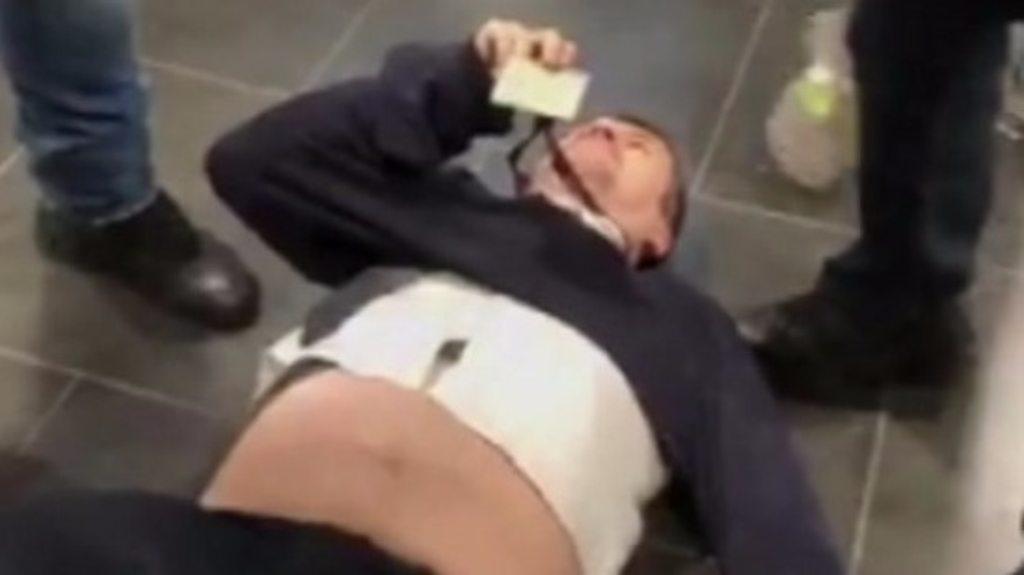Hungary's Fidesz leaders caught out by spontaneous protests
- Published
Hungarian MPs protest in TV headquarters
The crowds in the snow and ice outside the state TV building were the strangest and most colourful mix of protesters I have seen in Hungary in over 30 years.
Supporters of the nationalist Jobbik party rubbed shoulders with students sporting badges in solidarity with the Central European University.
The daily protests against Prime Minister Viktor Orban's Fidesz government were provoked principally by an overtime law pushed through parliament amid chaotic scenes by the Fidesz majority on 12 December.
The law, which comes into force on 1 January, increases the number of overtime hours employees can be asked to work annually, from 250 to 400, calculated after three years.
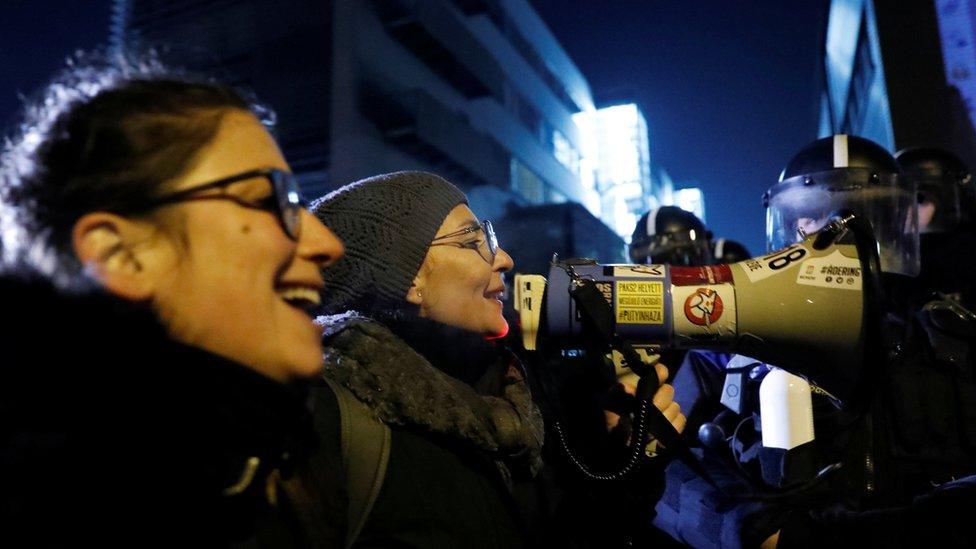
Protesters outside state TV denounced the new overtime law as a "slave law" on Monday night
Hungary has a shortage of workers - whether for small domestic firms, giant multinationals or German car factories - largely because of mass emigration of Hungarians to Western Europe.
And with very low unemployment, workers are angry that they are being squeezed to work longer and longer hours, away from their families, by a government that champions "family values".
The protests reached a climax when security guards at the state TV building manhandled opposition MPs and threw them out on Monday.
The violence has increased solidarity between opposition leaders, and an "opposition committee" now exists to help co-ordinate the protests.
This brings together all parliamentary opposition parties as well as the Momentum youth movement.
The Fidesz government appears bewildered by the speed and spontaneity of events on the streets.
On the one side Hungarian and European flags fluttered in the smoke of red, white, and green flares. Hot drinks and cakes, distributed by students, and the singing and chanting of the crowd added to the festival atmosphere.
Ranged against them were double lines of riot police, protecting the TV channel, a staunchly pro-government mouthpiece, from their wrath.
"Factory of Lies," chanted the crowd, and then "Filthy Fidesz."
One of the more humorous chants was "Konnygaz Szerelo", roughly translated as "Tear gas-fitter". It was a jibe aimed at one of Mr Orban's close friends and business associates, Lorinc Meszaros, who started as a lowly gas-fitter and under Mr Orban's patronage has risen to become one of the richest men in Hungary.
Tear gas has been used sporadically by riot police to keep back attempts by the crowd to break through the cordon, at parliament and the TV station.
What do protesters want?
They have five demands:
Cancel the overtime law
Less overtime for police officers
Independent courts
Join the European Prosecutors' Office
Independent public service media
What happens next will depend on the stamina of the protesters, the unity of the opposition, the restraint of the police, and the calculations of the government.
Why these protests are different
A key factor will be whether President Janos Ader signs the new laws on Friday 21 December, or returns them to parliament. Trade unions are consulting their members about nationwide strike action.
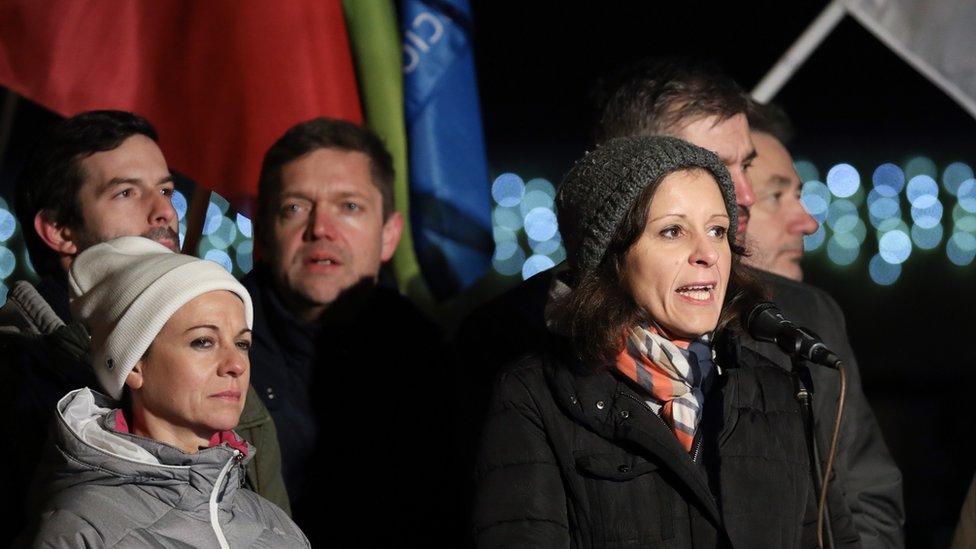
Bernadett Szel, an independent MP, addressed protesters outside the state TV HQ on Monday night
What makes these protests different to previous demonstrations against the Fidesz government is that ordinary working people have been galvanised into action.
Among other popular themes of protesters are widespread corruption in Fidesz circles and full government control of public service media and growing control of commercial media.
"Fidesz thinks they have defeated everyone, and that they can now do what they like," independent MP and protest organiser Bernadett Szel told the BBC.
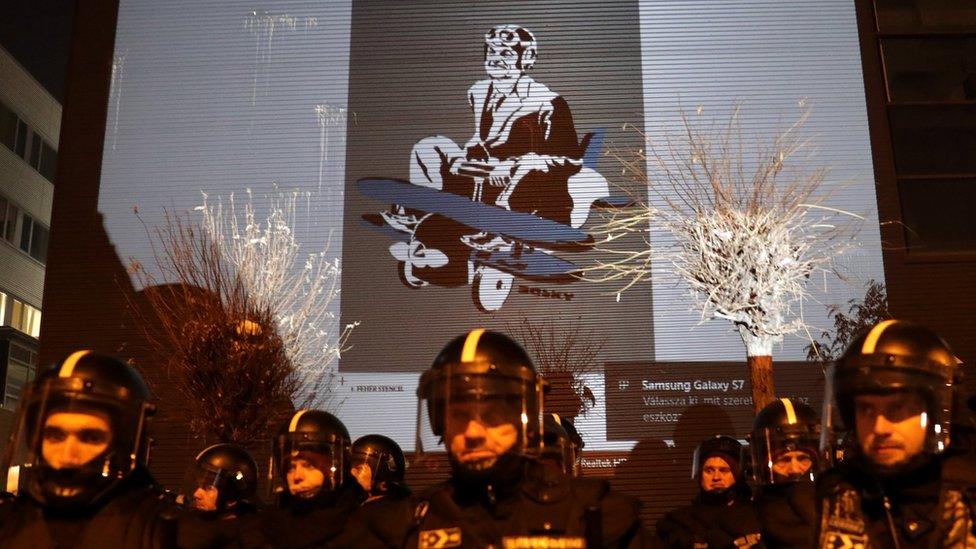
Humorous images of Viktor Orban were projected on the wall of the state TV building
Mr Orban came to power in 2010 and his party was re-elected last April.
"They just expect the people to be silent, and get on with their jobs. What we are seeing now is the answer of the Hungarian people to that arrogance," said Ms Szel.
As usual the government's response has been to blame Hungarian-born US businessman George Soros.
"The revolution unfolds with protest leaders from a band of the usual suspects, many of them trained abroad and with close ties to Soros networks, including minor opposition parties, a couple of dozen MPs, and a few NGOs," wrote government spokesman, Zoltan Kovacs, on his blog.
"Pawns in a larger political game, the protesters pretend that they are the majority in the face of a two-thirds parliamentary majority and overwhelming voter support for the governing parties."
- Published17 December 2018
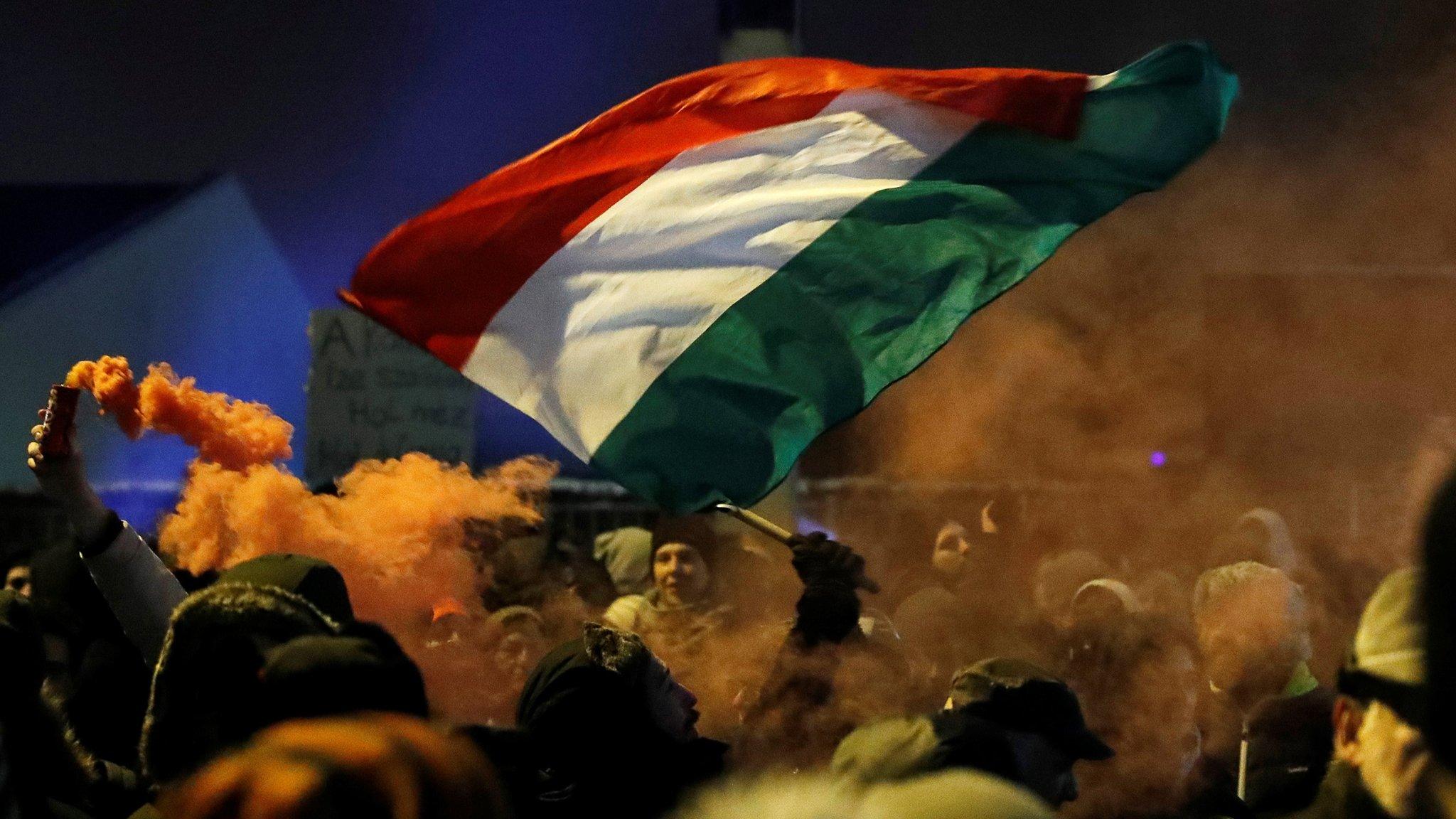
- Published17 December 2018
